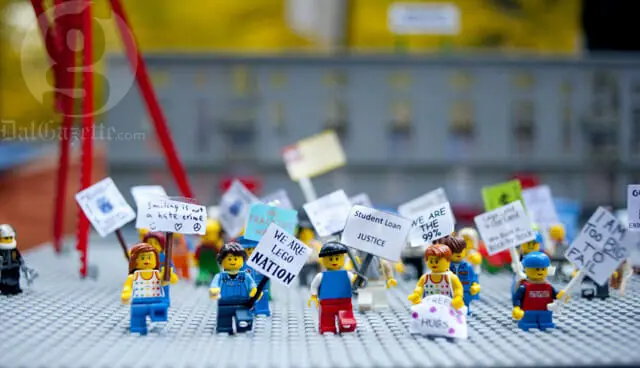
For their final issue of 2011, TIME magazine named “the Protestor” as Person of the Year. (Don’t worry, Kate Middleton was a close fifth.) Given the numerous riots, rallies and ousting of dictators, it seemed like a fitting choice. Tunisian liberator, London rioter, Occupier—they were all featured side-by-side, the meaning of their existence reflected upon in the context of the closing year.
Displayed across the pages of TIME, in comparison to the situation in Tunisia, Libya, or any of the protests in the Middle East, the Occupy movement seemed downright cute. Although it was certainly not the slant of the article, the data spoke for itself: recently graduated from liberal arts college Occupiers, compared to Tunisian fruit sellers just barely making a living? The stakes, of course, seem exceedingly different. And critics of the Occupy movement certainly did not fail to pick up on that point. In response to the Halifax Occupy arrests, one anonymous commenter on an online Globe and Mail article written by columnist Margaret Wente sneered: “Next time, they should be shown what police brutality really means.” Case in point.
Obviously, Occupiers had less risk of physical harm than the Arab people out to remove an oppressive government. For many—snide commenters, media, and students alike—this seems to somehow take away the credibility of the Occupy movement.
These critics fail to pick up on the subtleties of anything that is not presented as a physical threat. The Occupy movement is fighting something more subversive, murkier, and less physically present than the oppression thrown off in the Arab Spring. It is operating on the level of ideology and values. Like the protests in the Middle East, it is calling into question our very notion of justice. And it still doesn’t know the answer.
For many, the fight against dictatorship is an obvious cause to throw oneself behind. Without downplaying the enormity of the decision, it seems quite clear to those of us in Canada that the right not to be oppressed deserves to be upheld. The Arab Spring fought for a more tangible kind of freedom, while Occupy fights oppression of a different sort. It demands a right to rethink our values as a social whole—whether we believe that CEOs should increase their pay 27 per cent per year while that of the working class increases by 1 per cent, or whether we think that education should remain accessible.
And yes, I WILL sip my fair-trade latte in my warm, safe house as I talk about this, because when should physical comfort ever give a citizen an excuse to say we don’t have a right, and a duty, to be critical of and thoughtful toward the state of society?
As TIME writer Kurt Anderson puts it, “This year, instead of plugging in the headphones, entering an Internet- induced fugue state and quietly giving in to hopelessness, [protestors] used the internet to find one another and take to the streets to insist on fairness, and (in the Arab world) freedom.” Comfort should never be an excuse for apathy. As citizens of a relatively free country, we should be more aware and involved and critical than ever—because no one is aiming a rifle at us while we do it.
This isn’t the end of history, because history exists so long as people are there to make it happen. We reached seven billion on this planet a few weeks ago. It isn’t over, not by a long shot.

Recent Comments